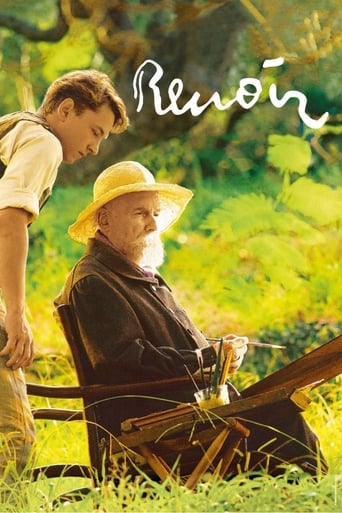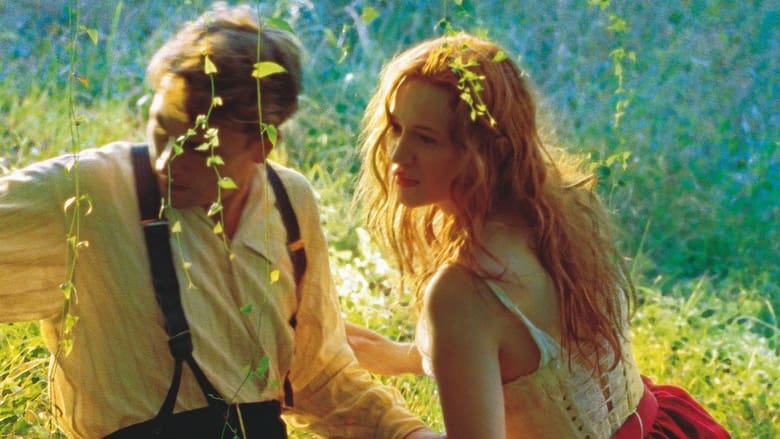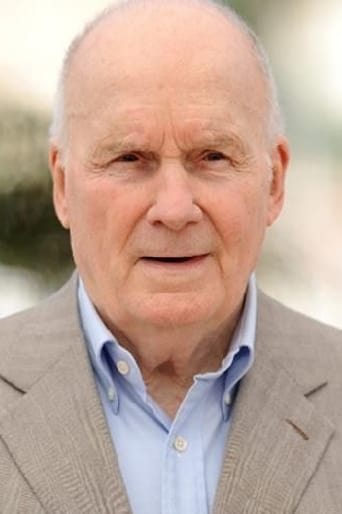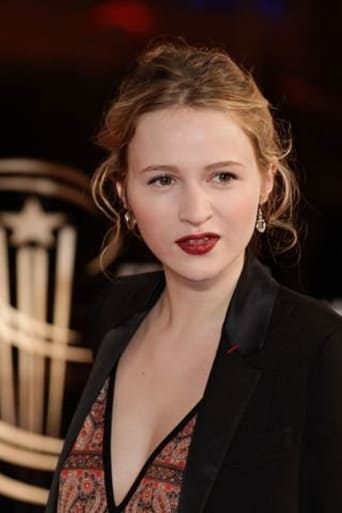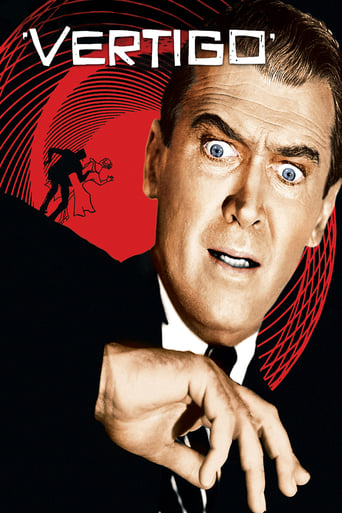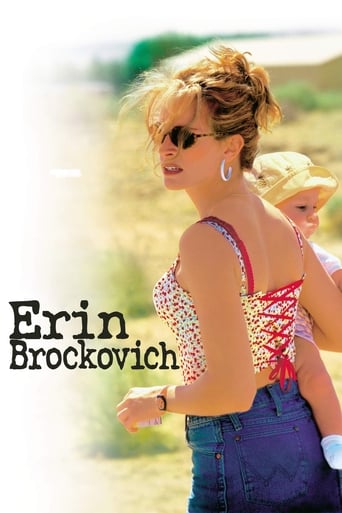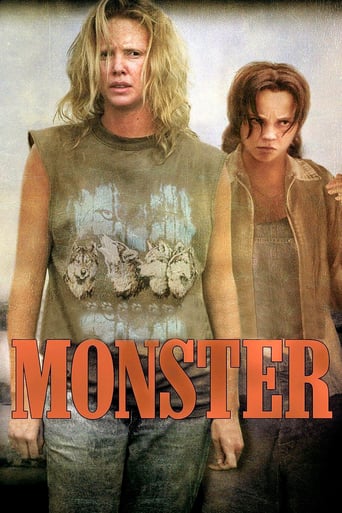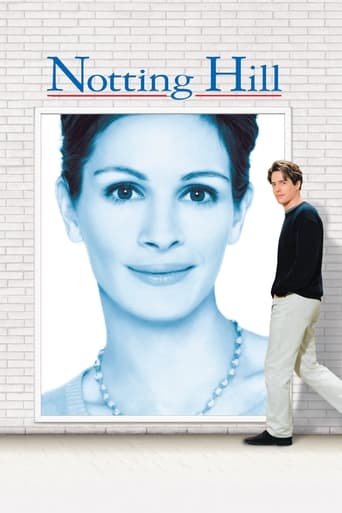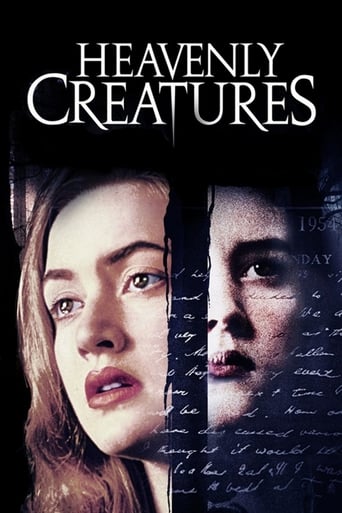Renoir (2013)
In the French Riviera in the summer of 1915, Jean Renoir, son of the Impressionist painter Pierre-Auguste, returns home to convalesce after being wounded in World War I. At his side is Andrée, a young woman who rejuvenates, enchants, and inspires both father and son.
Watch Trailer
Cast


Similar titles
Reviews
Very very predictable, including the post credit scene !!!
Such a frustrating disappointment
Great movie. Not sure what people expected but I found it highly entertaining.
The story, direction, characters, and writing/dialogue is akin to taking a tranquilizer shot to the neck, but everything else was so well done.
And to think I almost didn't see this film because of its ridiculously low IMDb rating. Are those now skewed by investment bankers, flash traders, and other impatient shills of Satan who find the pace of films like Renoir glacial? What a shame, if so. This film recounts and humanizes the final years of one of the world's most revered painters, one who rejected the title of artist. It is an Impressionistically rendered portrait (worth seeing for the Mediterranean light alone) that sparely and delicately portrays a cascade of relationships: between a father and a son 53 years younger, an arthritic painter who came to his métier in his fourth decade and a tempestuous adolescent model, the regenerative radiance of untrammeled eros, a love triangle, a female entourage who devotedly care for and carry le Patron wherever he will paint, a duty-bound WW I biplane pilot and a feisty fetishized lover, a latent filmmaker who here begins shedding his timorous, jejune indifference and later won international renown.It is a masterpiece, a visual, gustatory, and vocal feast, yet one from which music is mostly absent. A lingering, sequestered fin-de-siècle world from which war was mostly distant. A microcosm where vital energy in all its guises was evoked and honored. It prompts you to take in the light, the space, the nourishing gusts from the Mediterranean, the temperate, fertile verdure, the French cadences of early-20th-century rural France.Why so much talk among reviewers of abundant female "nudity" and "nakedness"? After a scene or two, it goes almost unnoticed, so naturally did it blend with the Edenic environs.The film is, perhaps above all, a condensed history of a family permeated by quiet genius and love of art and the arts. One somehow senses its origins and dénouements without being told of them.Renoir (the film) had deficits that others more critically competent than I have detailed. But it's tempting to begrudge Jacques Renoir, Gilles Bourdos and Jérôme Tonnerre the laconic textual bio of Andrée Heuschling (Christa Theret) that rolled by just before the credits. It asserted, not without Schadenfreude, that after her breakup with Jean Renoir in 1931 (not covered in the film), Andrée fell into a life of "obscure poverty".Yet no one actually knows what became of her. Could she not, for all we know, have bested Jean's fate? Might she have found her way to a Sardinian isle like the one where Lina Wertmüller shot Swept Away? A reclusive Impressionist may have offered to make a breezy, clothing-optional life with her in a cliff-side villa there (or so the sequel I'm planning has it). Only Heuschling, unlike Wertmüller's Raffaella, this time opted to stay put and leave the painted porcelain intact.
Writer/director Gilles Bourdos (with assistance from Jacques Renoir, Michel Spinosa, and Jérôme Tonnerre) bring us the incandescent beauty of a transcendent summer in 1915 in the Côte d'Azur when Pierre-Auguste Renoir began the denouement of the Impressionist period of painting. More than a simple story, this film is a recreation of the view of nature and of the human figure as bathed in that special light of the countryside of France. It is as much an artwork as t is a biographical view of one of history's great painters.The Côte d'Azur, 1915. In his twilight years, Pierre-Auguste Renoir (Michel Bouquet) is tormented by the loss of his wife, the pains of rheumatoid arthritis severely limiting his movement, wheelchair-bound, and the agony of hearing that his son Jean (Vincent Rottiers) has been wounded in the action of WW I. His household is tended by maids who have been previous models, and his youngest son Coco (Thomas Doret) who suffers from the lack of attention from his still grieving father. But when a young girl miraculously enters his world, the old painter is filled with a new, wholly unexpected energy. Blazing with life, radiantly beautiful, Andrée Heuschling (Christa Theret) will become his last model, who rejuvenates, enchants, and inspires both father and son. Returning to the family home to convalesce, Jean too falls under the spell of the new, redheaded star in the Renoir firmament. In their Mediterranean Eden - and in the face of his father's fierce opposition - he falls in love with this wild, untamable spirit... and as he does so, within weak-willed, battle-shaken Jean, a filmmaker begins to grow.Bathed in the cinematography glow of Ping Bin Lee and the subtle, sensual musical score by Alexandre Desplat and greatly enhanced by a pitch perfect cast, this film is more of a mood piece than a biopic. At film's end we are informed of the lives of the characters; Jean married Andrée and they made very successful films together until their divorce (Jean Renoir become one of the most highly regarded film directors in history, dying in 1979 – the year that the then destitute Andrée died, Coco (Claude) Renoir gained fame as a ceramic artist, and the eldest on Pierre became an actor whose son became the brilliant film maker Claude Renoir). It is an important moment in the history of art and a quietly pensive study of the mind of artists and their models. Highly recommended. Grady Harp, December 13
Appropriately enough, about the world's most famous Impressionist painter.While it's definitely not for those who strongly favor conventionally plotted drama or fast action, RENOIR consists of immediate realism and puts you right with the Renoir clan on the French Riviera. It's the sort of film that could easily have been made overly artsy and dull, but it's neither.The entire story takes place in 1915, toward the end of Renoir's life. The relationship between model Andrée Heuschling and son Jean Renoir is, in many ways, more the subject of the story than the painter himself, yet Renoir himself is indispensable as "the boss," a sort of god-like backdrop to the entire cast and story. Having said that, I must add that there is a fair amount on Renoir's artistic processes, and his philosophizing can be applied to all sorts of art-forms as well as painting. One of RENOIR's strongest aspects is its portrayal of a man who is obsessed with his work and has one thing which utterly engulfs and consumes him.Like many French films, RENOIR succeeds in breaking all sorts of rules. Among them: --The plot is meandering and somewhat slice-of-life but still gripping; --Andrée, the "girl from nowhere," and free but neglected youngest son Coco are characters that beg to be developed further, but at the same time, perhaps it's better that they remain mysterious; --Lots of female nudity without it seeming the least bit gratuitous: After all, the subject is an artist who often painted naked girls; --The mood is a successful mesh of somberness, poignancy, and (often laugh-out-loud) humor.Just about every artsy cliché could be applied to this film, but suffice it to say that it is a beautiful experience. Even simple colors come alive here for the audience as they did for Renoir himself. I'm a word person who's never been a big painting aficionado, but this film made me see the visual arts in a whole new light and may even have converted me to some extent. The soundtrack--quiet, unobtrusive piano scores in the background--also does a great deal to carry this film.
Apologies for my ESL.If you go to cinema for cinematography, or - to French films - for subtlety, precision and nuances in acting, do not go there - you'll be disappointed. Camera is not well with selecting frames and mise-en-scène. Misplaced – and moving – references to still life. Undeveloped primitive dialogs. If you were interested, the "story" is forgotten to be told.I assumed that director loved painter Renoir; I expected it to be in "Renoir" palette and settings, but it appeared in rather "Degas", with pleinair hints to "Pissarro".It was said (Manet?) about Renoir that "he thinks that he is a painter". Gilles Bourdos thinks he is a director.

